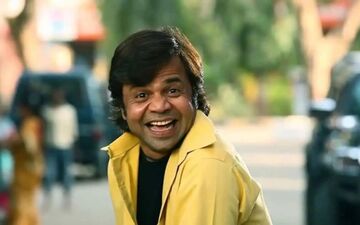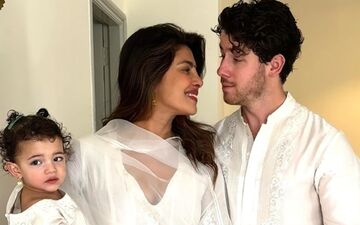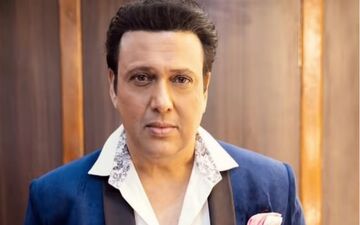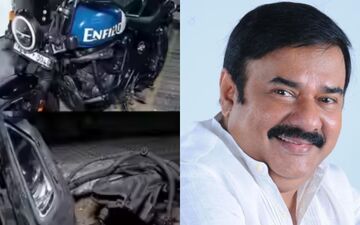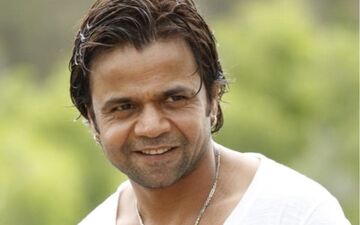16 Years Of Black Fond Memories Of A Classic That Saw Iconic Performances By Amitabh Bachchan and Rani Mukerji
As Black completes 16 years of Black, we go down the memory lane as to how Amitabh Bachchan came on board for this classic film.
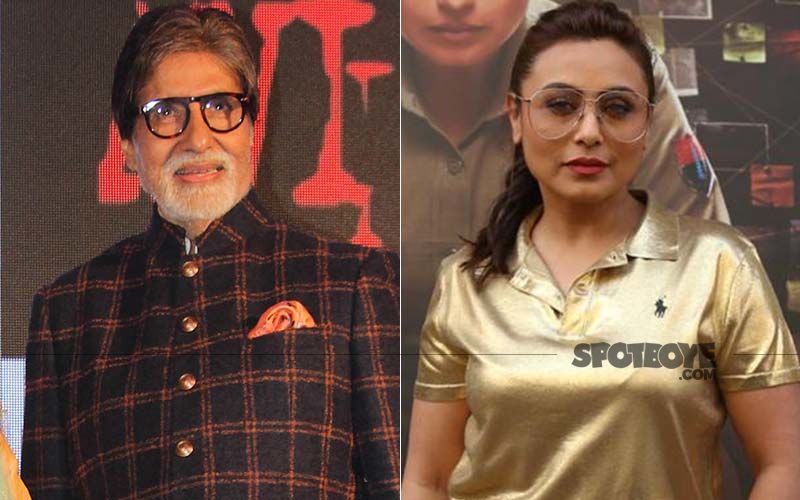
I have a very deep connection with my friend Sanjay Leela Bhansali’s Black. I was instrumental in getting Mr Bachchan on board for the film, a fact that Sanjay acknowledged at the Filmfare award function when Black won many awards. Not only did Mr Bachchan agree to come on board he even told me he wouldn’t accept a single paisa for the film, and he stuck to his words.
No one thought a film about a deaf-and-blind girl would create such a roaring impact??? Why do we always undermine the audiences’ intelligence? Sanjay explained,“ It started when the star system came on. Some filmmakers decided, ‘If we have a big star in the film we don’t need to work hard’. I think the star system brought in a kind of complacency. I decided to go completely by content in Black and also I decided to go against the genre of my last two films Hum Dil De Chuke Sanam and Devdas. Those films had worked. And I was worried about moving away. Will the audience come? I never doubted the audiences’ intelligence and aesthetic sense. But in Black the theme of the relationship between a teacher and his pupil was exceptional ‘commercially non-viable’…No exposure, no flesh no Shaadi-baraat no bhaiyya-bhabhi. Every box office norm has been broken. And Amitabh Bachchan at this stage of his career did the most unconventional role of his career.”
Then there was Rani going completely de-glam. Said Sanjay, “At the peak of her career Rani does a deglamorized role that requires her to go from her teens to the age of 40. I think this kind of rule-breaking required a lot of guts. But as I said I always believed my God, mother and audience are with me. I always knew the audience would for a well-told story. As a child, I always liked to hear new stories. And the way our grandmother told them made all the difference. The intelligence that Raj Kapoor, K Asif, Bimal Roy, Satyajit Ray or Ritwick Ghatak granted their audience was exemplary. I’d like to strive for the same. Why did we start questioning the audiences’ intelligence and aesthetic sense in the mid-1970s and 1980s?”
Black was a process of rejuvenation for Sanjay. “I had to reinvent myself as a creative person. For example, my camera person in Black was Ravi Chandran. I had to work extensively with all my actors before shooting started. With Amitji I had to get over my awe of him before I can get to a comfort level. I had to learn to take him into confidence rather than look up to him. Because neither he nor I had done anything like Black before. Fortunately, he’s one of the finest human beings I know, so communication was easy. The film gives Mr Bachchan a completely new persona and impetus. I’m grateful to Amitji for accommodating my film into his busy schedule. It’s fascinating to know that even today filmmakers are devising projects with him in mind. I think that makes him the greatest star-actor of our country. I’ve been his diehard fan from childhood. Ever since I started making movies it was my dream to work with him.”
Sanjay made a startling confession. “Even my first film Khamoshi: The Musical was written for Amitabh and Jaya Bachchan. But at that point of time, he had taken a break from acting, and I felt with a baritone like his, he'd never come back with a role that required him to be mute. For the fear of rejection, I never approached him. But let me tell you, during Khamoshi I had already started to plan Black. It was a spontaneous decision. After Hum Dil De Chuke Sanam and Devdas I could’ve easily planned another film in the romantic genre. But I felt like moving away. My audience wanted me to move on. Black was a subject I’ve lived with for six years. I just had to make it.”
To make a songless film required plenty of guts. “Though Black had no songs it’s treated musically. The lyricism is inherent in the scenes which look like song sequences. A song isn't the only way to interpret the lyricism. I didn’t miss songs in Black. They would’ve been a hindrance to the narrative. Can there be a complete Hindi film without songs? Songs have been integral even to grassroots classics like Do Bigha Zameen and Mother India. But I wanted to take another approach to Black. The audience today isn’t stuck on songs. Half the audience takes a break during song sequences. I love shooting songs. And I work harder over them than any other aspect of my film. But that doesn’t mean I should be stuck on them. I don’t think I’ll allow audiences to miss songs in Black.”
The film’s success surprised all. “I was told its multiplex film….whatever that means. Emotions have no niche. Mother-son, saas-bahu, teacher-pupil… these are bonding that can reach everywhere. Human emotions have nothing to do with schooling or economic strata. If I strike a chord in the audience a film is bound to work. Maybe some people felt black was too delicate a film to hold the masses. Maybe the film had abetter reach. But I feel Black has the grace the pace and frenzy.”
Image source: Youtube/Rishabhchangra/Venus/saifalibaba

